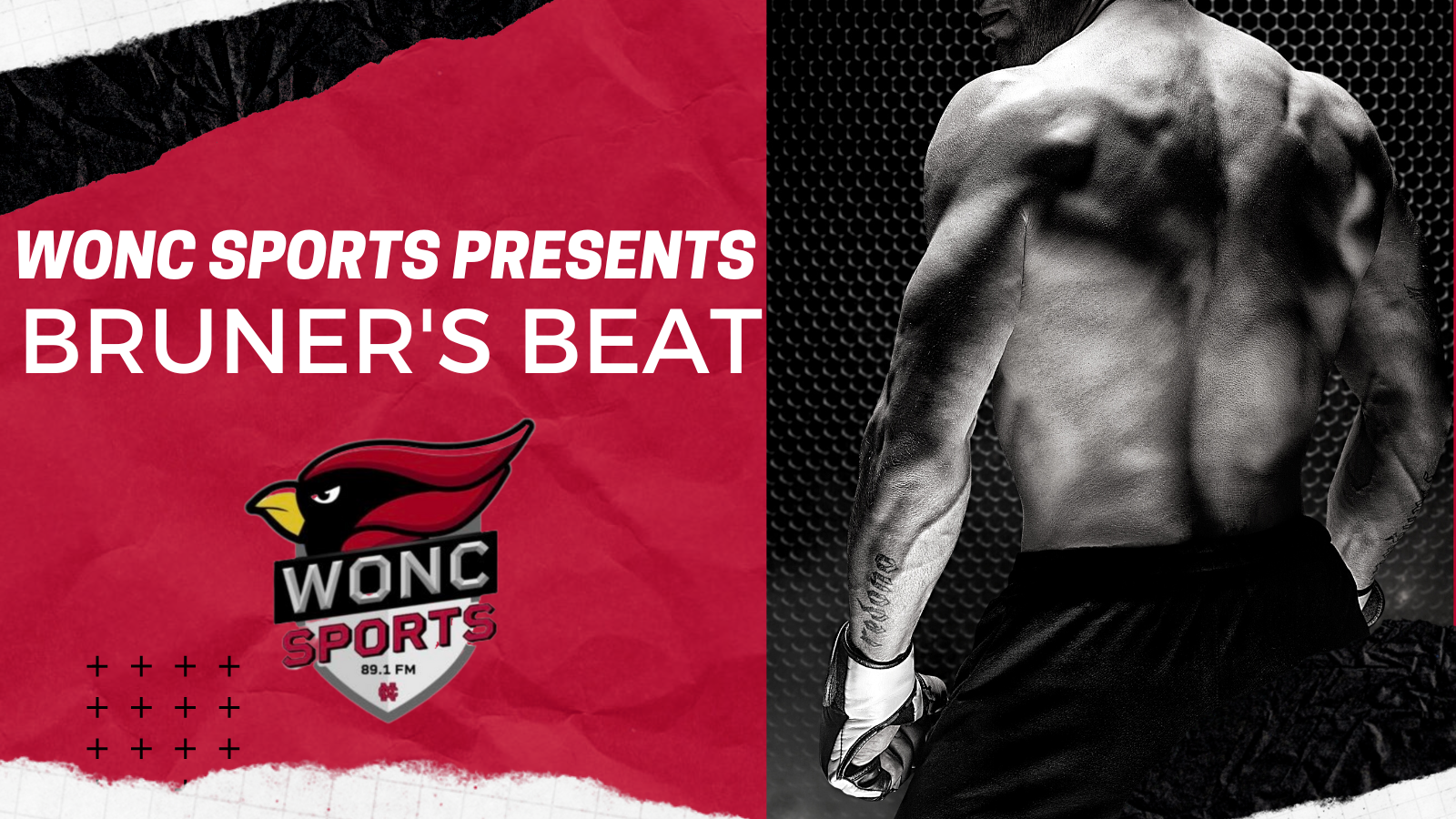
- Listen Live
- Podcasts
- Who Are We?
- Music
- Featured Local Artist
- Specialty Shows
- Alumni Spotlight
- The John Drury Awards
- WONC Coffee Roasts
- WONC Sports
- NCCLinked

by Evan Bruner
“Bet on yourself” has become a common phrase in 21st-century athletics. In a time when athletes in both team and individual sports act more as their own entities than pawns bound to their respective teams or organizations, it’s become increasingly common to challenge the status quo and carve your own path.
One of the most common examples of this is passing on a contract in hopes of eventually earning a more lucrative one. This is by no means a foolproof endeavor. In some cases, athletes overestimate their value and lose out on money by waiting for a market for their services that never arrives.
However, when an undervalued athlete knows his worth, the payoff can be extremely satisfying. No one exemplifies this quite as well as former UFC Heavyweight champion Francis Ngannou. Unsatisfied with his compensation, Ngannou voiced aspirations of a boxing match with undefeated heavyweight boxing champion Tyson Fury. The UFC scoffed at the prospect of such a bout, deeming Ngannou not worthy of the same treatment that Conor McGregor received when he fought Floyd Mayweather in 2017.
This, compounded with the UFC’s disproportionately low compensation for its fighters, led Ngannou to do the unthinkable: leave the promotion. Technically, the UFC isn’t the only MMA promotion out there, but it might as well be. It has a quasi-monopoly of the sport’s top talent and publicity. Further, Ngannou wasn’t your run-of-the-mill fighter; he was the undisputed heavyweight champion and was one of the sport’s biggest draws. By leaving the promotion, he missed out on a potential super fight with Jon Jones, which would’ve been the most profitable fight of his entire career. But Ngannou remained adamant that if the UFC wasn’t willing to give him what he believed to be fair pay, it wasn’t deserving of his services. He vacated his title and signed with the Professional Fighting League (PFL) in May.
The months that followed were filled with uncertainty. Of course, Ngannou could fight in the PFL, but against whom? The talent disparity between the UFC and PFL would make potential matchups unexciting to most fans. It was clear that Ngannou wanted the fight with Fury, but the logistical issues of crossover fights often stop them from coming to fruition. Some worried Ngannou had made a mistake. He lost his belt, his chance at solidifying himself as the greatest heavyweight of all time, and for what? Just to stick it to UFC president Dana White?
With the benefit of hindsight, it’s easier to understand Ngannou’s vision. The fight with Fury was labeled as a “freak show” bout. One of the greatest heavyweight boxers of all time in his prime boxing, an older, smaller fighter with no prior boxing experience even surpassed Mayweather vs. McGregor levels of a seemingly unfair fight.
However, the optics of a fight don’t mean anything once it starts. It didn’t matter that Ngannou wasn’t supposed to be competitive, that everything was working against his favor; he went out and delivered one of the most impressive boxing performances in recent memory. In his boxing debut, Ngannou went toe-to-toe with an all-time great and narrowly lost a fight that many believe he won.
Though Ngannou lost, he was easily the event’s biggest winner. He got his dream fight, made the most money of his career, gained the respect of the boxing community, and stuck it to his ex-employer.
Ngannou has become the face of the movement toward fair fighter pay. The UFC has long paid its athletes a smaller share of the revenue than any other major sports league. Though it’s been almost universally accepted as unfair, due to the UFC’s power and prestige, the fighters have had little leverage.
Ngannou doesn’t single-handedly destroy this paradigm, but his success jeopardizes it. He now has the most opportunities of his entire career. He could continue boxing, return to MMA, or start looking toward retirement. He never would’ve had this range of options if he’d stayed with the UFC. Future fighters may use Ngannou’s success as inspiration for betting on themselves. This isn’t to say they’ll be as successful, but the mere prospect of numerous fighters leaving the promotion could be enough to change how the UFC does business.
Featured Local Artist: Unto The Earth
Our Featured Local Artist for November is Unto the Earth, a four piece metal band from Naperville and Aurora, straddling the lines between stoner, desert, doom, and sludge, with shoegaze and heavy psych influences. Formed in 2019 by guitarist Mike Yoshida and bassist/vocalist/instrumentalist Simeon Papacostas, along with lead guitarist Jed [...]WONC 89.1FM/North Central College
| Play | Cover | Release Label |
Track Title Track Authors |
Page | Buy | Delete |
|---|